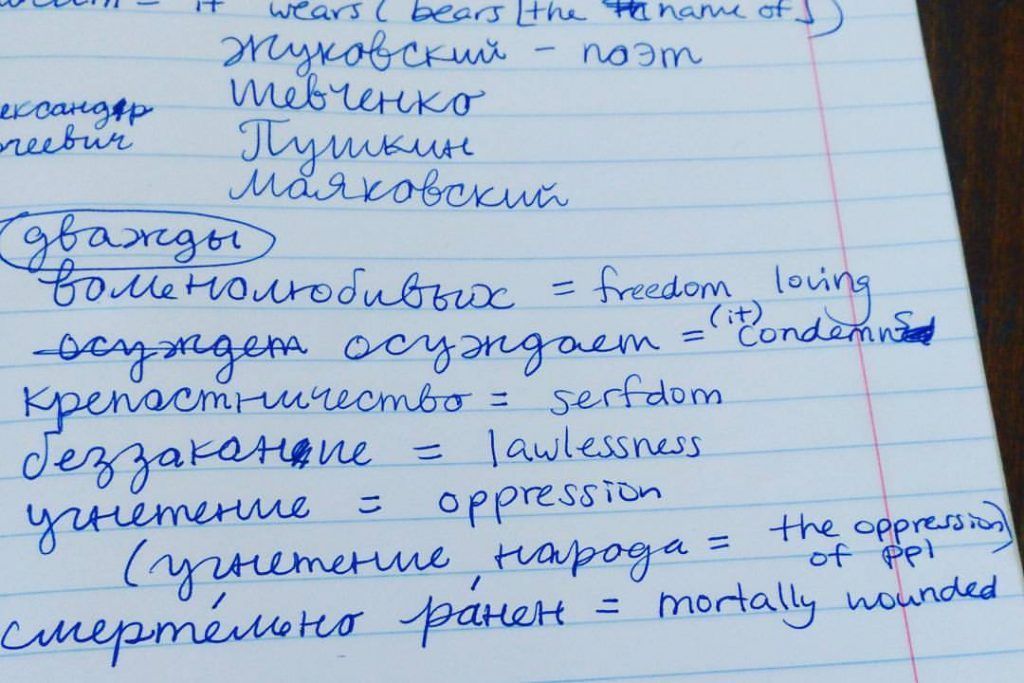I used to think that in the moments of crisis, you should first seek all available solutions, and then, when there’s nothing else that can be done, pray.
I knew prayer was important but believed it was more like a Hail Mary pass . When everything seems hopeless, you just kind of chuck your prayer up into the air, hoping it will stick. But the longer I’ve served as a missionary in Ukraine with TEAM , the more that belief has been proven wrong.
For the times in the past year when I felt like (and had the language abilities of) a child, prayer was all I had. I could listen to someone pouring out their heart and try to understand, but at the end of the day, all I could do was pray for them in broken Russian or in English in my heart. I didn’t have any magical advice or foolproof solutions to painful life situations; I only had the Lord to lean on and the trust that He will work and be glorified in all things.
When I would walk in downtown Odessa and pass a crowd of people watching Hare Krishna pilgrims dancing and chanting to drums and bells, I was compelled to pray. Seeing people so completely invested in the worship of a lie brought an overwhelming sadness to my soul.
I couldn’t just walk up to them and start a conversation about what they believe and who God really is. I could barely ask for things at the market in Russian and confused the words for “chicken” and “cinnamon.” I was completely unable to “do” anything, so I prayed. I begged God to open their eyes and show them who He is in contrast to the god of the air they worship. I asked God to reveal Himself to them, that they may know Him and live.
After my first school year in Russian studies, though, I was no longer mixing up the easy words (I was still mixing up words, but now they were longer and more impressive ones!), and I felt like I had a much better handle on communication, both in listening and in speaking.

Notes from my Russian homework. You never know when you’re going to need to know how to say “serfdom.” Photo courtesy of Amanda Keeny.
When summer came, I moved to my ministry team leader’s house to watch their dog with their friend Katya while they were in the United States for a few months. I knew Katya before that summer, but we had not been close. But over the course of three months that felt far too short, a real friendship began to develop between us. We would share what God had done in and through us that week, the minuscule and the big and exciting, and we would share how we’d been struggling.
I was finally able to give advice in Russian and felt like I could help find ways to “fix” our problems. But before trying to fix something, Katya and I decided to pray — to ask God to show us what was best, what was needed and what was not. Even as my language abilities got better and I was able to live life with Katya completely in Russian, God was constantly showing me that prayer is the most important and most active thing I can do.
Now I’m in my second year of language school*, this time as a freshman Russian philology major at Odessa National University – Mechnikov. I know more of the Russian language than I ever thought possible (or than I had ever wanted to know). I’m able to keep up with lectures in Russian on all aspects of linguistics and literature and take decent notes, ask follow-up questions and interact with professors and fellow students.
But even as I’m linguistically able to communicate real solutions to complex situations, the Lord has reminded me that prayer comes first and actions follow.
Like when my professor, the most intelligent linguist I’ve ever met, lectures on worldview and asks us to include religions with myths, because to her, god is a myth. Or when she asks me about what I’m doing in Ukraine and what my plans are for life and the future, I pray first.
I ask God to give me the words He has for her and to open her heart to hear truth as only He is able to do. Then I speak, boldly and unashamedly, because my God has already gone before me in this conversation. I know He will allow things to be remembered or forgotten according to His will, so I don’t have to worry about messing it up or getting in the way.
Prayer is the first course of action, not just when we’re weak and learning and don’t know what to say. Even when we know what to say and have an idea of what to do, we need to bring our lives and all the moments in them before the throne of God, humbly acknowledge that we don’t know it all and ask for wisdom to do and say what is best.
*Since publication, Amanda has gone on to officially complete her two years of language school! That said, she’s excited to continue to see what the Lord has for her during her time in Odessa.




















